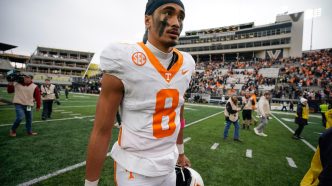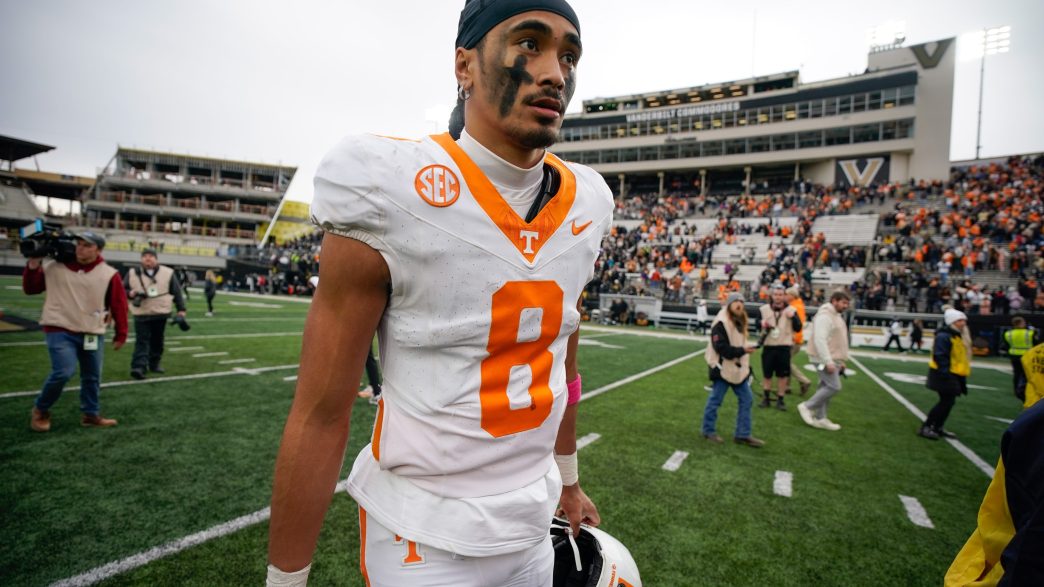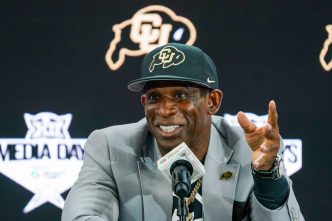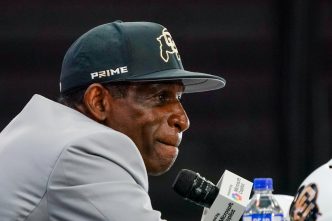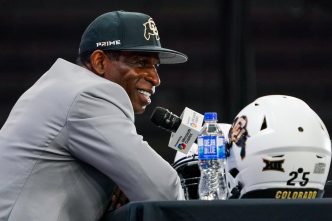Over the weekend, the Tennessee Volunteers’ quarterback Nico Iamaleava found himself at a significant crossroads, parting ways with the program following a contract dispute that led to a brief holdout. Iamaleava didn’t participate in practice on Friday, a move that sparked conversations about the evolving landscape of college football, particularly in light of the NIL (Name, Image, and Likeness) agreements that have transformed player-market dynamics.
At the center of this situation is Iamaleava’s camp, primarily consisting of his father and agent, who had been negotiating for a raise from his expected $2.2 million to around $4 million for the coming season. This isn’t surprising when we consider that Iamaleava made headlines back in 2022 for securing an impressive $8 million NIL deal as a high school recruit. After a year at the helm as Tennessee’s starting quarterback, he’s now on the lookout for a new home.
His predicament is reflective of a broader trend seen this offseason, especially after quarterbacks like Carson Beck and Darian Mensah successfully navigated the transfer portal in search of better NIL opportunities at Miami and Duke, respectively. ESPN reported that Iamaleava’s disputes were becoming a point of concern among Tennessee administrators and within the locker room. As the spring transfer portal is set to open from April 16-25, Iamaleava’s increasing demands may have amplified the urgency behind these discussions. After he missed practice and failed to communicate with the staff, head coach Josh Heupel decided it was time to move forward without him.
In a press conference following the team’s spring game, Heupel expressed appreciation for Iamaleava’s contributions: “These guys have an appreciation for Nico and what he’s done since he’d been here too… At the end of the day, we’re all responsible for finding 105 guys who are committed to giving their all for Tennessee.” His sentiment resonates with many coaches navigating this new reality as the portal opens, showcasing a commitment to building a cohesive team.
This episode has drawn considerable attention, primarily because of the holdout—which bears a striking resemblance to tactics we typically see in the NFL. Despite the murky waters surrounding Iamaleava’s situation largely due to well-meaning but perhaps misguided influences from his camp, it underscores a frustrating reality about a college sports system grappling with its own evolving norms regarding player compensation. The lack of a structured payment system from the NCAA has left a vacuum, leading to reliance on boosters and corporate sponsors.
Marc Spiegel, founder of an NIL collective in Louisville, noted, “There’s always a first. It started with opting out of the bowl game. Until there’s a bit more formality regarding contracts, this kind of situation could continue.” His insight highlights the growing pains of a system still finding its footing, where the balance of power is shifting toward the athletes.
Iamaleava entered the college football scene with high expectations, boasting an unprecedented deal that undoubtedly inflated perceptions of his worth, particularly after a modest performance last season with an SEC program. Unfortunately, this weekend marked the breakdown of communication between him and the Volunteers, a critical misstep for both sides in navigating this high-stakes environment.
As conversations about the implications of the transfer portal continue, it’s evident that this is still an experimental era for NIL deals, where college athletes wield a newfound leverage. With collectives making lofty promises that don’t always materialize and established coaches reconsidering their roles amidst these changes, Iamaleava’s standoff captures the complexities of this moment in college football.
While Iamaleava searches for a new opportunity in the transfer portal, the Volunteers now face the pressing challenge of securing a new starting quarterback. Meanwhile, fans and analysts will debate the broader repercussions of this episode, pondering whether it signifies a turning point for college football—or merely another chapter in a season filled with unprecedented developments.

